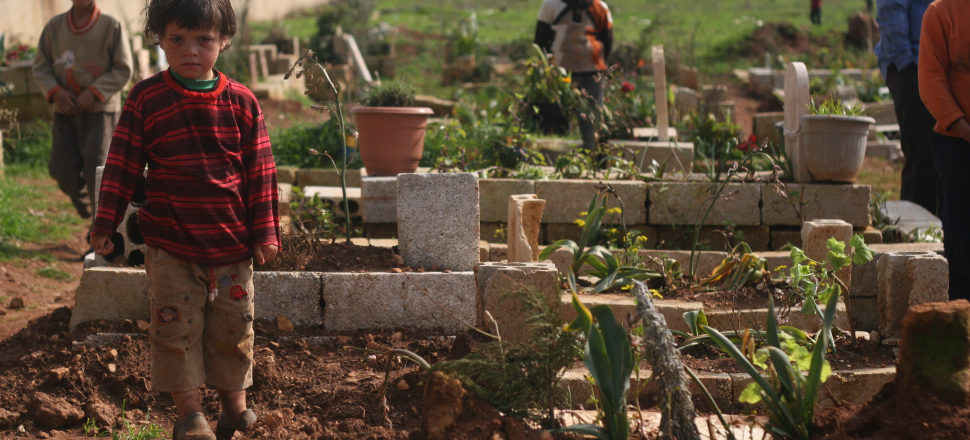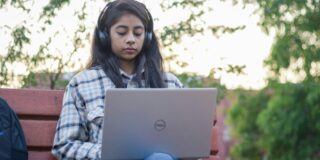
Right Now Editor Hector Sharp chats to Amy Lamoin is Head of Advocacy for UNICEF Australia. She has over a decade of professional experience working in the human rights field. Before working for UNICEF Amy held domestic roles for the Department of the Premier and Cabinet, the Australian Human Rights Commission as well as working international for UNHCR. Over the past five years her focus has shifted towards child protection; in 2013 she coordinated child protection programs for Syrian refugees living in camps in Jordan and Iraq.
Right Now: Amy, before joining UNICEF you worked for the Australian Human Rights Commission, can you describe the largest challenge in making the jump from advocating rights in a domestic setting to working in an international capacity?
Amy: I worked at the Australian Human Rights Commission for around five years before I joined UNICEF and specialized in race discrimination and minority and cultural rights. Working at the Commission provided me with an excellent grounding in human rights, which I’ve relied on routinely when responding to humanitarian emergencies.
The Australian Human Rights Commission was an excellent stomping ground for international work for three chief reasons. First, the Commission is mandated and skilled at addressing systemic inequality. I become skilled at operating from a systems-based approach. This is an important but also somewhat undervalued skill in humanitarian emergencies. Our interventions should always by systems- focused and strengthen the capacity of the host government to respond to the emergency. Host governments should be a key part of decision making around humanitarian emergencies. We should not be creating parallel child protection systems or other systems. As far as possible, the intervention should link upwards to the domestic legislative and policy context. The humanitarian community should not be making decisions in isolation. We should always consider how to operate in a way that makes the intervention sustainable at a local level. In the past when I have programmed for UNICEF this has meant requiring INGO’s partners to mentor local community based organizations to build their capacity and technical expertise.
Second, working at the Commission made me community focused and deepened my understanding of the meaning of community- led responses. Humanitarian responses and protection measures inevitably fail in contexts where affected communities are not properly consulted and where they have limited ownership over the daily life in their communities. If you want to keep children safe, we need to hear from and mobilize the community as an initial step. Solid community based protection in emergencies is critical.
Third, and related to the above point, working in race discrimination has made me acutely aware of how to operate with deep respect for cultural identity and protocols and practices. You rightly can’t gain the trust of community leaders without showing reverence for culture. One of the most important things you can do in an emergency is to support community leaders to lead. It isn’t my culture, my country or my emergency. Communities live with the consequences of decision making tomorrow and tomorrow and tomorrow and tomorrow. I don’t. They have to be at the centre of decision making.
Having a background in race discrimination has also given me the confidence to know how to reasonably and sensitively challenge practices that can harm children such as early and forced marriage and female cutting/female genital mutilation.
Staying on the subject of the AHRC, do you have an opinion on the decision to combine the Disability Commissioner’s role together with the Age Commissioner’s role into one job title?
I do have an opinion. Australia requires an adequately resourced, full time Disability Discrimination Commissioner with a single portfolio focus on discrimination. I think that current arrangements wrongly conflate the areas of age and disability.
We understand you worked on the borders of Syria in 2013, can you tell us about your position and what your main roles were on a day-to-day basis working for UNICEF?
I worked on the border of Jordan and Syria in Za’atari and ECJ camps and assisted in planning Asraq Camp and was a Child Protection Specialist for UNICEF. My formal responsibilities included child protection programming and monitoring, coordinating our child protection partners in the delivery of their programs, services and case management, identifying and responding to emerging child protection risks and training partners in a range of content areas including responding to children experiencing profound stress.
In real terms, there is no usual day. It can be a high level meeting with a government official. It can be sitting in a tent with family in distress and listening. It can be a coordinating meeting to scale up child protection activities when ten thousand people cross a border at night.
I spend as much time as I can in camps talking to parents and children to test what we think we know about the emergency and what’s happening across communities. Those conversations matter to us. It’s a way to measure community feeling and to anticipate and prevent situations that put children and families at greater risk.
What is your greatest challenge in educating people about human rights and international humanitarian law, both on the ground in local communities and back here in Australia?
In my current context, that seeking asylum is legal.
If you were to go back to Syria, what is one thing you wouldn’t be able to do your job without? And what is one thing you would take to remind you of home?
I couldn’t do my job well without good mentoring. I’ve been lucky to have highly skilled mentors throughout my career. Good mentors are invaluable when are working in areas that are highly stressful and complex. Good mentors create good mentors and I hope to become that for my staff in the future. The work cycle of humanitarians can be short because of the nature of the work, so it’s important that we retain specialist knowledge and good practice.
I talk to my family routinely while I’m away on mission. It helps to hear their voices. Seeing the family connection of other people being lost or disrupted is a constant reminder of the importance of my own family connections. I carry photos of my family – from when my sister and I were small. Mum used to dress us in matching outfits. It’s a reminder of my own story. Every family has one. Even in refugee camps that are growing to resemble whole cities, every child and every family has a story.
Thank you very much for joining us Amy.




